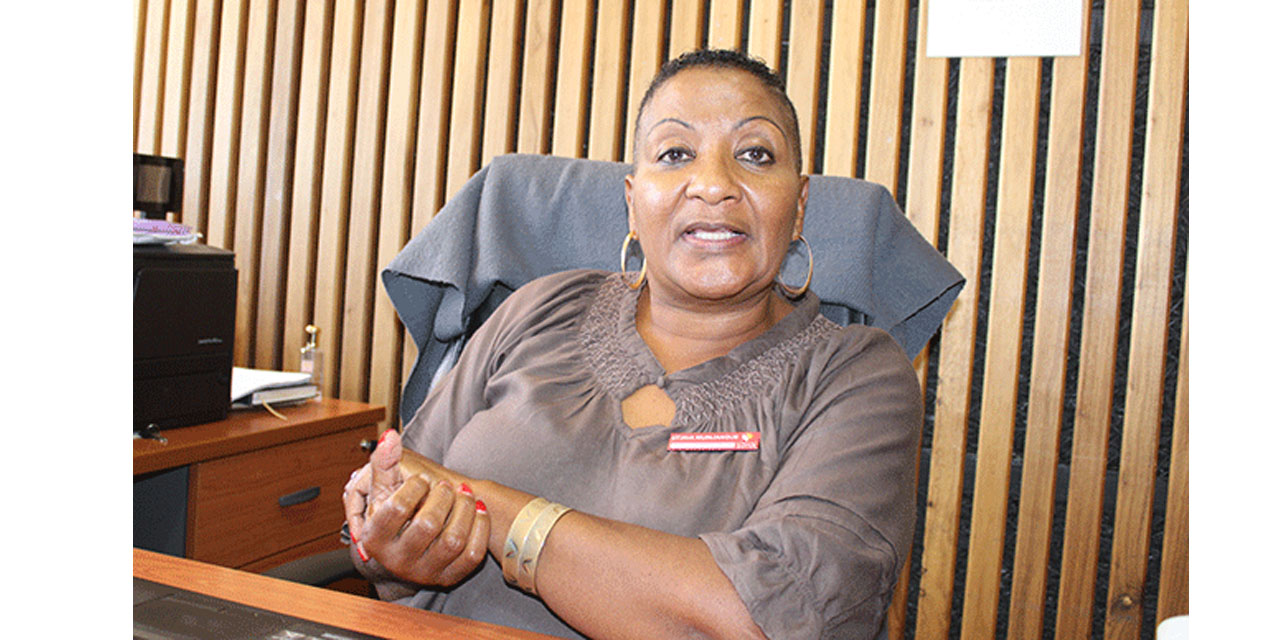Niël Terblanché
Despite its critical role, the pharmaceutical sector in Namibia faces numerous challenges, including limited resources, a lack of local manufacturing capacity, medication shortages, and the need for better integration of pharmacy services into the broader healthcare system.
The Deputy Minister of Health and Social Services, Ester Muinjangue, said this during the launch of the Annual National Pharmaceutical Services Forum on Wednesday.
“Despite these challenges, there are numerous examples of innovative solutions and best practices that we can learn from and adapt to our context,” she said.
The Annual National Pharmaceutical Services Forum serves as a platform for addressing the challenges and opportunities within Namibia’s pharmaceutical sector.
She said the forum provides an opportunity for public-sector pharmacy professionals to engage in meaningful dialogue, fostering innovative solutions to the challenges faced in delivering quality healthcare to the nation’s citizens.
According to Muinjangue, pharmacy services play a pivotal role in the healthcare system, overseeing the pharmaceutical supply chain, patient care, medication management, and health education.
“The Pharmaceutical Management Information System (PMIS) health facility indicators for the 2023–2024 financial year indicate that the average number of prescriptions per dispenser per day in public health facilities is very high. In the same vein, the patient load per pharmacist in public hospitals is also high. Pharmacists in public hospitals handle an average of 50 to 60 patients per dispenser per day. This high patient load adversely impacts the quality of care and the ability of pharmacists to provide comprehensive patient counselling and follow-up,” she said.
The event in Walvis Bay brought together pharmacy professionals, stakeholders, and government officials to discuss strategies for enhancing pharmaceutical services across the country.
Muinjangue said that it is at gatherings like this that medical professionals can collectively address pressing issues, leverage best practices, and pave the way for a healthier Namibia.
The forum also focused on the National Medicines Policy, which aims to improve and strengthen pharmaceutical service delivery through a robust governance mechanism.
The policy outlines strategies to improve the pharmaceutical supply chain, from regulatory frameworks and human resources to drug procurement and rational use.
Ben Nangombe, the Executive Director of the Ministry of Health and Social Services, stressed the importance of the availability of pharmaceuticals in providing healthcare services.
“Medicines and related items are at the centre of providing health care for our people,” he said while also decrying the impact of the lack of adequate medicines on vulnerable populations who rely on public health facilities.
He said that the Directorate of Pharmaceutical Services has made significant strides in addressing these challenges, including the successful implementation of multiple sourcing strategies to ensure a steady supply of pharmaceuticals and the revision of the Clinical Supplies Catalogue to eliminate redundant items, resulting in cost savings.
In order to ensure effective resource allocation for the purchase of medicines, the directorate has also improved forecasting and quantification processes.
Innovations such as the upgraded Electronic Dispensing Tool, now implemented in 73% of Antiretroviral Therapy (ART) sites, have enhanced patient care and efficiency.
He added that efforts to combat antimicrobial resistance have also progressed, with Namibia’s inaugural report to the Global Antimicrobial Resistance Surveillance System (GLASS) marking a significant advancement in monitoring and surveillance.
The forum also celebrated the achievements of top-performing regions and hospitals.
The Erongo region was awarded first place for best regional performance, followed by the Oshana and Khomas regions.
The Onandjokwe Intermediate Hospital emerged as the top hospital, while Oshakati Intermediate and Swakopmund District Hospitals secured the second and third places, respectively.
The Hardap region received recognition as the most improved region, and the Grootfontein District Hospital received the title of the most improved hospital.
Nangombe urged participants to continue their efforts to improve pharmaceutical services.
“Let us work together to ensure that every Namibian has access to safe, effective medications. By exchanging knowledge, sharing best practices, and developing innovative approaches, we can strengthen our healthcare system and achieve our vision of high-quality pharmaceutical care for all,” he said.




